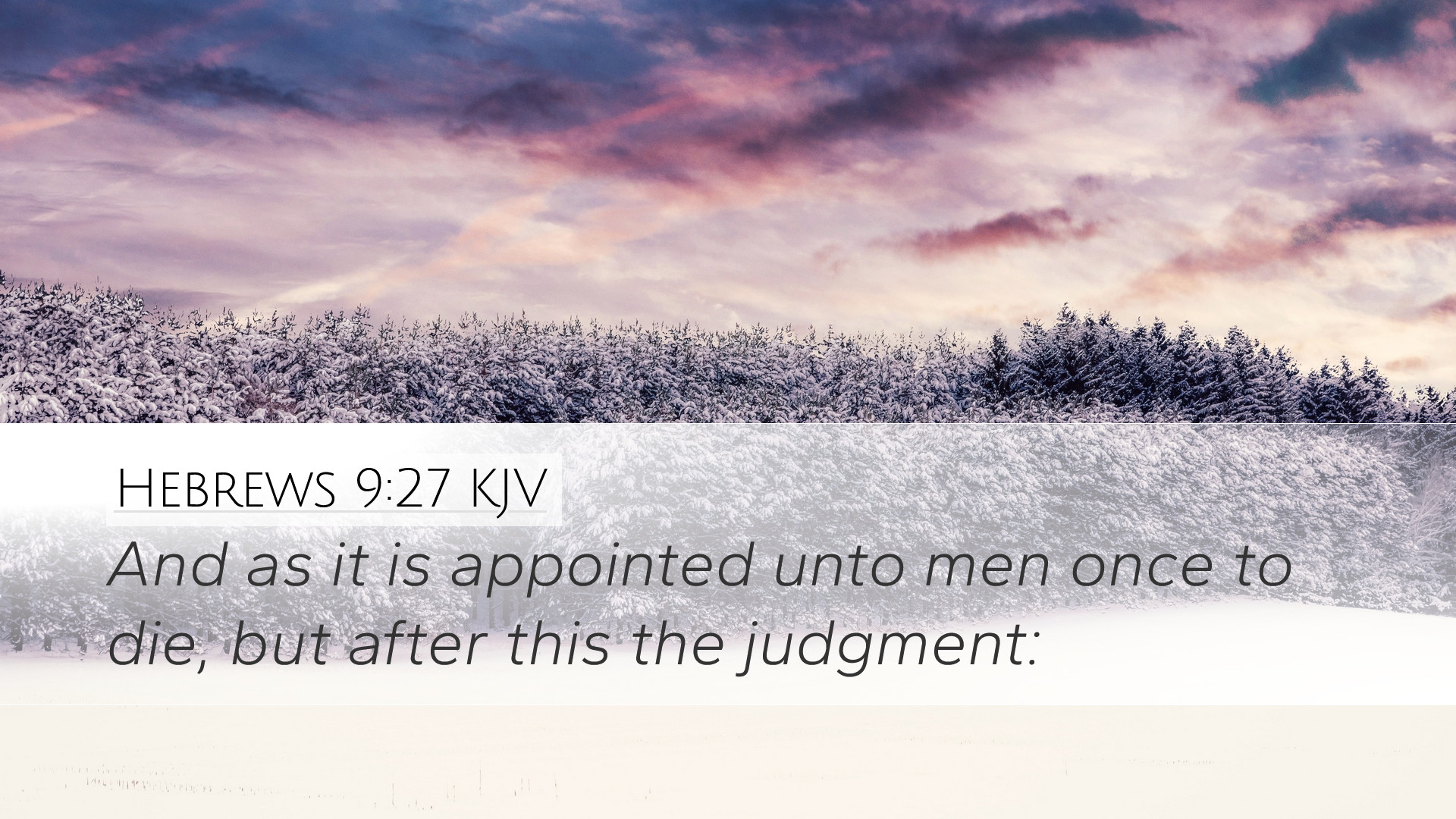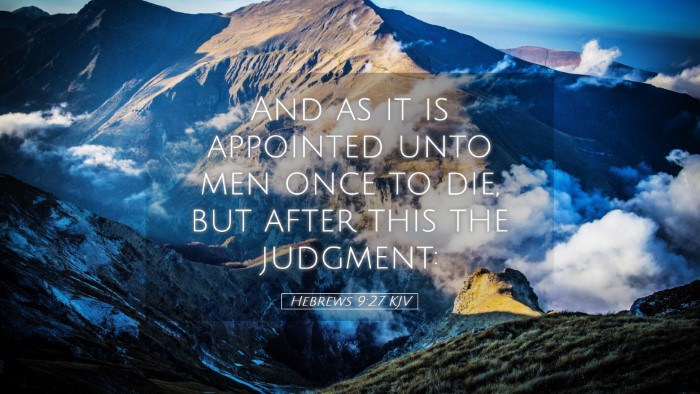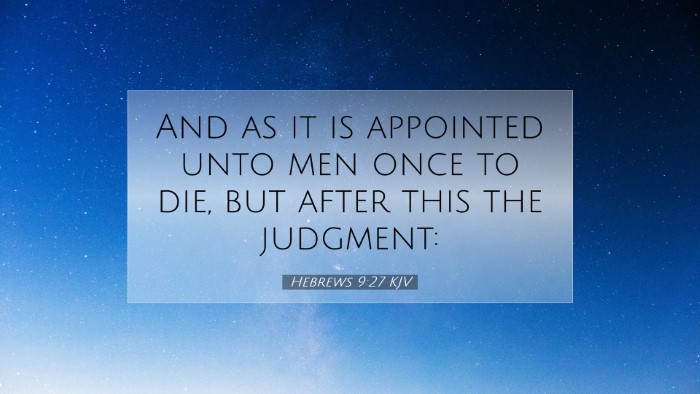Commentary on Hebrews 9:27
Verse: "And as it is appointed unto men once to die, but after this the judgment."
Introduction
The verse Hebrews 9:27 presents a profound theological declaration regarding the destiny of humanity. The epistle to the Hebrews discusses the supremacy of Christ and the implications of His sacrificial death, and this particular verse serves as a cautionary reminder of mortality and divine judgment.
Meaning and Implications
To grasp the significance of Hebrews 9:27, we must consider several key elements:
- Universality of Death: The phrase "as it is appointed" indicates that death is an inevitable aspect of human existence. Matthew Henry reflects on this inevitability, emphasizing that death comes to all individuals, irrespective of status, wealth, or wisdom.
- One Appointment: The notion of being assigned "once to die" suggests that every person has a singular, defined appointment with death. Albert Barnes highlights this point by noting that this single event is certain and unalterable, framing it as a vital pillar of Christian eschatology.
- Judgment to Follow: The latter part of the verse, "but after this the judgment," assures us that death is not the finale. Adam Clarke stresses the continuity of existence beyond death, leading to a divine judgment where every individual will stand before God to account for their life actions.
Theological Insights
This verse encapsulates several theological themes that are paramount for understanding Christian doctrine:
- The Nature of Humankind: The acknowledgment of death brings forward a discussion on human nature and sin. The writer of Hebrews, by linking death to judgment, implies that the fall of humanity leads to this crucial endpoint, as sin is the catalyst that necessitates death.
- Hope in Christ: While the immediate context presents a somber reality, it also speaks to the hope found in Christ's redemptive work. As Matthew Henry notes, while death is a certainty, for believers, it becomes a passage to eternity rather than merely an end, signaling a transition into the presence of God.
- Judgment Day: The assurance of judgment post-death raises vital concerns about moral conduct during earthly life. Albert Barnes emphasizes that this aspect encourages believers to live righteously, knowing that their actions will eventually warrant scrutiny before the Creator.
Practical Applications
For pastors, students, and theologians, the verse presents critical applications:
- Preparation for Death: The inevitability of death encourages personal reflection and preparation. Believers are called to live lives of integrity and faithfulness, understanding the temporality of earthly existence.
- Composure in Trials: Knowledge of an appointed death provides comfort in suffering. As Clarke articulates, recognizing death as a part of God's sovereign plan helps Christians endure tribulations with hope instead of despair.
- Evangelistic Motivation: This verse serves as a poignant reminder for believers to engage in evangelism, urging others to consider their eternal destinies and the gospel's invitation to eternal life through Christ. Henry admonishes that the knowledge of judgment should spur Christians to share their faith fervently.
Conclusion
Hebrews 9:27 offers a compelling convergence of mortality and eternity, encapsulating critical doctrines about human life, death, and divine judgment. The insights drawn from public domain commentaries, such as those by Matthew Henry, Albert Barnes, and Adam Clarke, enrich our understanding and emphasize the responsibility of believers to live faithfully in light of eternal truths. Pastors and scholars are encouraged to grapple with this verse deeply, allowing its implications to shape their teaching and personal conduct.


